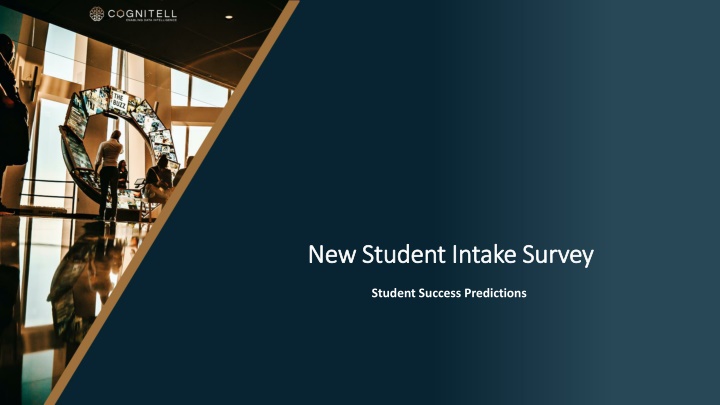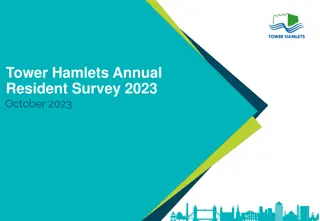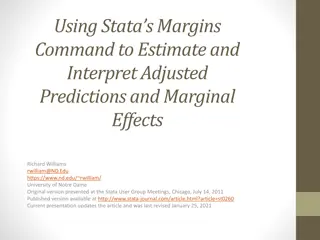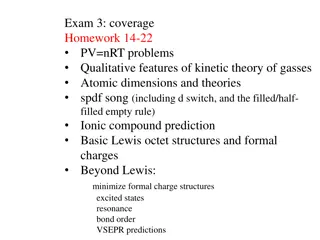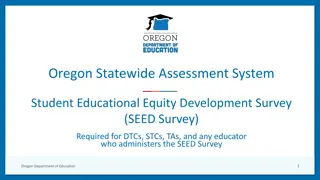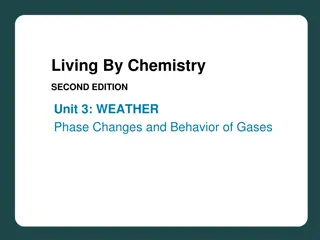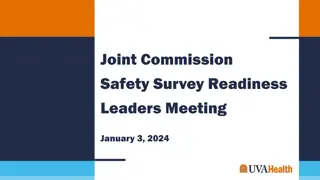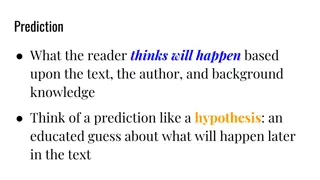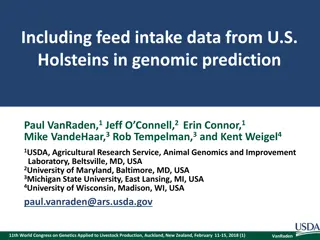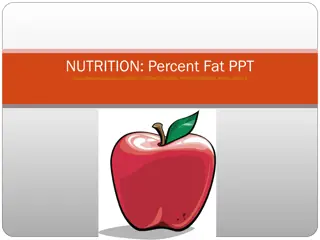New Student Intake Survey for Student Success Predictions
This presentation delves into utilizing a new student intake survey to predict and enhance student success. Discover how to meet diverse student needs, achieve success goals, address challenges, and incorporate important psychosocial factors.
Uploaded on Mar 08, 2025 | 1 Views
Download Presentation

Please find below an Image/Link to download the presentation.
The content on the website is provided AS IS for your information and personal use only. It may not be sold, licensed, or shared on other websites without obtaining consent from the author.If you encounter any issues during the download, it is possible that the publisher has removed the file from their server.
You are allowed to download the files provided on this website for personal or commercial use, subject to the condition that they are used lawfully. All files are the property of their respective owners.
The content on the website is provided AS IS for your information and personal use only. It may not be sold, licensed, or shared on other websites without obtaining consent from the author.
E N D
Presentation Transcript
New Student Intake Survey New Student Intake Survey Student Success Predictions
Presenters Matt Swaffer Technical architect working with Cognitell. Background in Educational Psychology and experience designing systems that extract information and knowledge from data, enabling intelligent reasoning. Louisa Hunkerstorm Director of Institutional Effectiveness Central Wyoming College Oversee data/research as well as continuous quality improvement 1200 6th Avenue, Suite 800, Seattle, WA 98101 | (719) 314-3400 | www.cognitell.com
Needs and goals Meet the needs of a wide variety of students Achieve student success goals Equity Retention and graduation Identify student barriers and likely challenges as early as possible Track trends Be able to make predictions and recommendations that improve student success and help use resources efficiently 1200 6th Avenue, Suite 800, Seattle, WA 98101 | (719) 314-3400 | www.cognitell.com
Challenges with existing intake assessments Expensive Not customized Might not work for our small student population Colleague SIS hard to integrate with 1200 6th Avenue, Suite 800, Seattle, WA 98101 | (719) 314-3400 | www.cognitell.com
Background of CWC Work Worked with IR and Student Success to develop intake survey Iterated over scales and items to tailor to the population Incorporated items related to previously collected drop / withdrawal 1200 6th Avenue, Suite 800, Seattle, WA 98101 | (719) 314-3400 | www.cognitell.com
Psychosocial & Skills Factors (PSF) Achievement motivation Academic goals Academic skills Motivation and Skills Academic self-efficacy General self concept Self- Regulation Perceived social support Social Involvement Institutional Commitment Social Engagement (Le et. al. 2005, Robbins et. al., 2004,2009) 1200 6th Avenue, Suite 800, Seattle, WA 98101 | (719) 314-3400 | www.cognitell.com
Psychosocial & Skills Factors (PSF) Relevant to Goals & Population Achievement motivation Academic goals Academic skills Motivation and Skills Self- Academic self-efficacy Regulation Social Perceived social support Engagement (Le et. al. 2005, Robbins et. al., 2004,2009) 1200 6th Avenue, Suite 800, Seattle, WA 98101 | (719) 314-3400 | www.cognitell.com
Population Specific Constructs Drop Withdrawal Reasons Gathered from CWC reports COVID-19 Specific issues for CWC students 1200 6th Avenue, Suite 800, Seattle, WA 98101 | (719) 314-3400 | www.cognitell.com
Selected Constructs Motivational & Skills Mastery goal orientation Academic goals Academic skills Growth mindset Grit 1200 6th Avenue, Suite 800, Seattle, WA 98101 | (719) 314-3400 | www.cognitell.com
Selected Constructs Self-Regulation Academic self efficacy Intellectual Ability Scholastic Competence 1200 6th Avenue, Suite 800, Seattle, WA 98101 | (719) 314-3400 | www.cognitell.com
Selected Constructs Social Engagement Perceived social support Family support 1200 6th Avenue, Suite 800, Seattle, WA 98101 | (719) 314-3400 | www.cognitell.com
Selected Constructs Population Specific Drop Withdrawal COVID-19 Health Family Finances Logistics 1200 6th Avenue, Suite 800, Seattle, WA 98101 | (719) 314-3400 | www.cognitell.com
Distribution Logistics Incoming degree-seeking students in student success course, offered extra credit Loaded results into DMARS (Wyoming community college database) for querying and modeling 1200 6th Avenue, Suite 800, Seattle, WA 98101 | (719) 314-3400 | www.cognitell.com
Uses of Data Coaching of individual students Identifying trends Predictive analytics 1200 6th Avenue, Suite 800, Seattle, WA 98101 | (719) 314-3400 | www.cognitell.com
Whats next What did the data tell us? Was it predictive? Make adjustments? Rolling out the assessment to a larger group of students earlier in the process Making predictions (and associated recommendations) and getting those predictions/recommendations to the right people 1200 6th Avenue, Suite 800, Seattle, WA 98101 | (719) 314-3400 | www.cognitell.com
References Le, H., Casillas, A., Robbins, S. B., & Langley, R. (2005). Motivational and Skills, Social, and Self-Management Predictors of College Outcomes: Constructing the Student Readiness Inventory. Educational and Psychological Measurement, 65(3), 482 508. https://doi.org/10.1177/0013164404272493 Robbins, S. B., Oh, I.-S., Le, H., & Button, C. (2009). Intervention effects on college performance and retention as mediated by motivational, emotional, and social control factors: Integrated meta-analytic path analyses. Journal of Applied Psychology, 94(5), 1163 1184. https://doi.org/10.1037/a0015738 Robbins, S. B., Oh, I.-S., Le, H., & Button, C. (2009). Intervention effects on college performance and retention as mediated by motivational, emotional, and social control factors: Integrated meta-analytic path analyses. Journal of Applied Psychology, 94(5), 1163 1184. https://doi.org/10.1037/a0015738 1200 6th Avenue, Suite 800, Seattle, WA 98101 | (719) 314-3400 | www.cognitell.com
